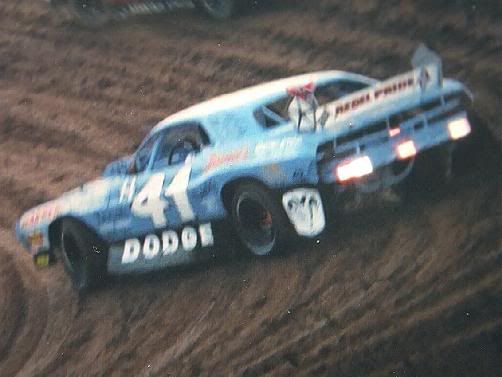we are waiting for a lesson. lol
Here you go, if you really are a "realist" or just a poser. I'll keep it as simple as I can, as i understand that some of you can't deal well with truth.
Torque is twisting force. HP is time. What do you look at on your time slip? E-lapsed T-ime right? So HP is how much WORK you can do over a measured TIME. It's really simple.
Here's another for Jerry's crowd. Torque is the twisting force it takes to turn a door knob. HP is how QUICK you turn it.
What about comparing two different combinations?
I engine makes about 425 HP and makes 810 or so lbs-ft of torque. And lets say (because you are all realists right?) it's in a 3600 car w/lb driver (don't hate the driver cuz he's fat) and lets say 3000 rpm converter (can you really mash the taters) 27 inch tall tires, a measured engine speed of 5700 rpms (on the dyno..not using your *** to guess on shift points) and a 3.73 gear. What do you have for performance? Say 11.50's or so about 115 MPH.
Take take the SAME car, everything the same, except you made 650 HP and 450 lbs-ft of torque? Uh-oh batman...I hate when the math makes myths look stupid. You are not at 10 teens or so at about a buck 30 for MPH. Since you lost the stupid long stroke, you can turn this motor 6500 rpm's, using the same tire and a 4.10 gear. you are now using the axle ratio to move the car.
No matter how you slice it, HP is KING. Make all the torque you want, the TIME SLIP says HP wins.
And, since school is in, what does Harold Bettes say about torque vs. HP? He says: "The phrase "I would rather have more torque than horsepower"...IS OFTEN-HEARD AND MISGUIDED. Emphasis mine. Quoted from "Engine Airflow" page 4. Look it up. On page 8 he says, and I quote, Commit this one to memory. There is an old saying "there is no replacement for displacement", and although that is NOVEL, it is not necessarily the TRUTH". Emphasis mine.
I could continue to quote from others, but what else do you need?
CLASS....................DISMISSED.
Now go learn some truth and stop spreading myths.

ops::wack::cheers::banghead:

















